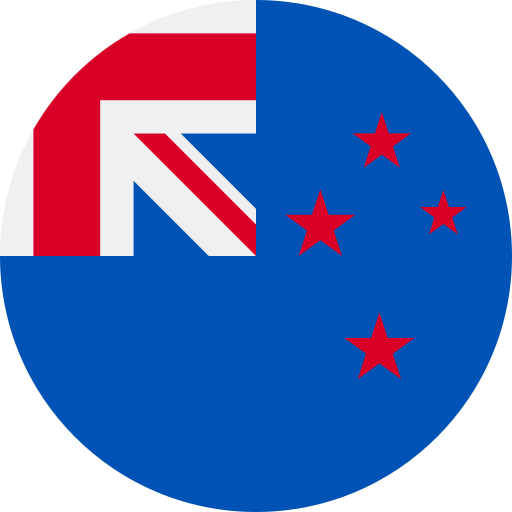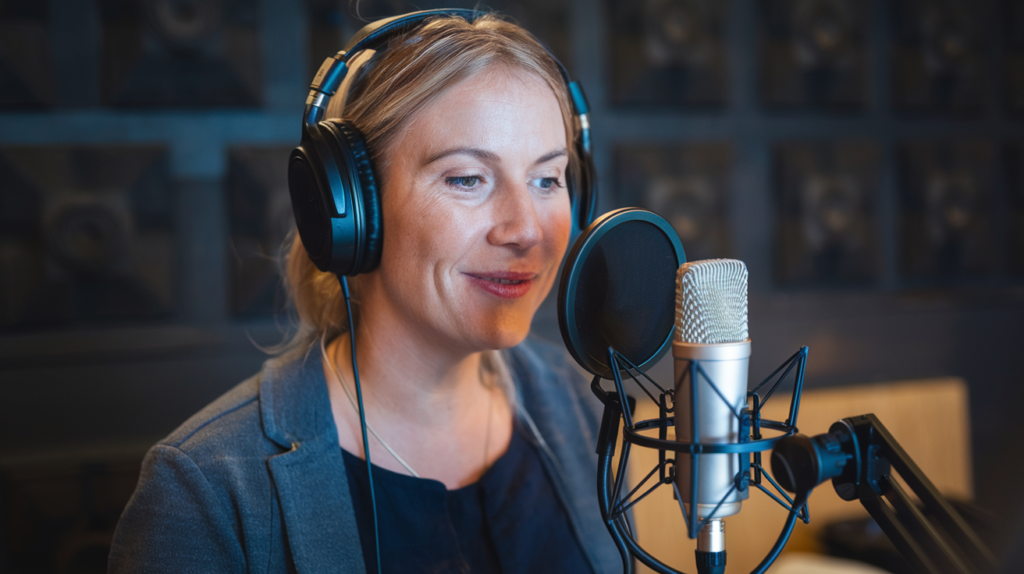Key Takeaways
- Cultural Revitalization: Māori Language Week is essential for revitalizing Te Reo Māori, promoting cultural identity and heritage among the Māori people.
- Community Engagement: The week fosters community connection through various events that encourage individuals to participate in learning and using Te Reo Māori.
- Educational Impact: Schools play a vital role during this week by integrating Te Reo into their programs, enhancing students’ appreciation of their cultural roots.
- Historical Significance: Understanding the history and milestones of Te Reo Māori’s revival highlights the importance and impact of ongoing language preservation efforts.
- Government Support: Institutional backing, funding, and policies are crucial for promoting Māori Language Week, ensuring resources are available for effective community engagement.
- Personal Connection: Participating in Māori Language Week allows individuals to deepen their ties to Aotearoa’s culture while reinforcing pride in speaking Te Reo Māori.
Have you ever wondered how a week dedicated to language can spark a cultural revival? Maori Language Week isn’t just a celebration; it’s a crucial step in revitalizing the rich heritage of the Māori people. As more individuals embrace Te Reo Māori, they’re not only preserving their identity but also fostering deeper connections within communities.
Overview of Maori Language Week
Māori Language Week serves as a dedicated time for promoting and celebrating Te Reo Māori, the indigenous language of New Zealand. This event occurs annually, fostering awareness about the importance of language in cultural identity. During this week, various activities and events take place across communities, schools, and organizations to engage people with the language.
Participants embrace opportunities to learn basic phrases, attend workshops, or join community gatherings focused on speaking Te Reo Māori. Schools often integrate special programs that encourage students to use Māori in their daily interactions. The initiative not only revitalizes interest in the language but also strengthens connections among individuals who share a commitment to preserving their culture.
The significance of Māori Language Week extends beyond mere celebration; it plays a crucial role in keeping the language alive for future generations. By encouraging conversations around Te Reo Māori and its relevance today, this week reinforces the value of heritage in shaping identities within Aotearoa (New Zealand).
Historical Context
Māori Language Week plays a pivotal role in the revitalization of Te Reo Māori, rooted in a rich historical framework. Understanding its origins and key milestones emphasizes the importance of this initiative.
Origin and Development
Te Reo Māori faced significant threats during colonization, leading to a decline in its everyday use. The 1980s marked a turning point when activists rallied for language recognition and revival. Recognizing the need to preserve cultural heritage prompted governmental support for educational initiatives focused on Te Reo Māori. This growing awareness laid the groundwork for establishing Māori Language Week as an annual celebration.
Key Milestones
Several key milestones underscore the progress made in revitalizing Te Reo Māori:
- 1987: The New Zealand government officially recognized Te Reo Māori as an official language.
- 1990: The first Māori Language Week took place, aiming to encourage usage and appreciation within communities.
- 2008: A survey indicated increasing interest among New Zealanders in learning Te Reo, showcasing broader community engagement.
- 2016: The launch of a dedicated digital platform facilitated access to resources and learning tools related to Te Reo Māori.
These milestones illustrate not only the resilience of the language but also how proactive measures can foster cultural pride and identity among future generations. Engaging with these historical aspects enriches your understanding of why celebrating Māori Language Week is essential today.
Importance of Maori Language Week for Revitalization
Māori Language Week serves as a cornerstone for revitalizing Te Reo Māori and celebrating its significance in New Zealand’s cultural landscape. The week fosters a deeper understanding of the language, encouraging individuals to embrace their heritage.
Cultural Identity
Cultural identity thrives through the use of Te Reo Māori. Embracing the language strengthens connections to ancestors and traditions, enabling individuals to express their unique identities. Participating in Māori Language Week allows you to engage with your roots, making the experience not just educational but also deeply personal. Learning basic phrases or participating in communal activities reinforces the pride associated with speaking Te Reo Māori, creating a sense of belonging within communities.
Community Engagement
Community engagement amplifies during Māori Language Week as various events bring people together. Schools often host workshops and interactive sessions that encourage students and families to practice speaking Te Reo Māori daily. These gatherings foster camaraderie among participants who share a common goal: preserving their language and culture for future generations. Engaging with local initiatives helps strengthen community bonds and creates an environment where conversations about cultural heritage flourish, ensuring that Te Reo remains vibrant and relevant today.
By actively participating in these celebrations, you contribute to the ongoing effort to revitalize Te Reo Māori while enhancing your own connection to Aotearoa’s rich cultural tapestry.
Impact on Education
Māori Language Week significantly influences education by promoting the integration of Te Reo Māori in learning environments. This initiative fosters a deeper understanding of cultural identity among students and encourages the use of the language in everyday interactions.
Language Learning Initiatives
Language learning initiatives during Māori Language Week create opportunities for students to engage with Te Reo Māori actively. Schools implement diverse programs, including workshops, presentations, and interactive sessions that focus on speaking and understanding the language. These initiatives not only enhance students’ linguistic skills but also cultivate an appreciation for their cultural heritage. Teachers often incorporate songs, games, and storytelling methods to make learning enjoyable and effective.
School Participation
School participation plays a critical role in revitalizing Te Reo Māori through community involvement and collaboration. During this week, schools across Aotearoa (New Zealand) host events that encourage students to embrace their culture by using Te Reo Māori daily. Activities like themed assemblies or cultural days promote engagement among students, teachers, and families alike. By celebrating Te Reo Māori together, schools strengthen community bonds while reinforcing the significance of maintaining linguistic traditions for future generations.
Government and Institutional Support
Government and institutional support plays a crucial role in promoting Māori Language Week. Various initiatives enhance the visibility and usage of Te Reo Māori within communities, schools, and organizations.
Policy Framework
The policy framework surrounding Māori Language Week focuses on preserving and revitalizing Te Reo Māori as an official language. The New Zealand government has established policies that encourage the integration of Te Reo Māori into education systems and public services. This includes mandates for incorporating the language into curricula at all levels of schooling. As a result, educators receive guidance on implementing effective teaching strategies that foster students’ connection to their cultural heritage while enhancing language proficiency.
Funding and Resources
Funding and resources allocated for Māori Language Week significantly impact its success. The government designates funding for various programs aimed at promoting Te Reo Māori through workshops, community events, and educational materials. Grants support local initiatives that facilitate participation in language learning activities during the week. Additionally, partnerships with institutions provide resources such as online courses or interactive apps designed to make learning accessible to everyone interested in embracing Te Reo Māori. These financial commitments ensure sustained efforts toward revitalization while encouraging broader community engagement.
This expanded support from governmental bodies strengthens cultural pride among individuals committed to keeping Te Reo alive for future generations.
Conclusion
Māori Language Week is a powerful catalyst for revitalizing Te Reo Māori and reinforcing cultural identity. This initiative not only fosters community engagement but also inspires individuals to embrace their heritage. By participating in various activities and workshops, you contribute to the preservation of the language for future generations.
The commitment shown during this week highlights the importance of keeping conversations about Te Reo alive. It’s a time to celebrate your connection to ancestors while building a stronger sense of belonging within your community. As you engage with Te Reo Māori, you’re playing an essential role in ensuring its vibrancy continues for years to come.
Frequently Asked Questions
What is Māori Language Week?
Māori Language Week is an annual celebration dedicated to promoting and revitalizing the Māori language, Te Reo Māori. It encourages individuals and communities to engage with the language through various activities, workshops, and events aimed at enhancing cultural awareness and connection.
Why is Māori Language Week important?
The week plays a crucial role in preserving Te Reo Māori by fostering community bonds and a sense of identity. It raises awareness about the significance of cultural heritage while encouraging conversations around the language’s relevance today.
When did Māori Language Week start?
Māori Language Week began in 1990 as part of efforts to revitalize Te Reo Māori following its decline during colonization. The recognition of Te Reo as an official language in 1987 marked a pivotal moment leading up to this initiative.
How can schools participate in Māori Language Week?
Schools can participate by integrating special programs that teach students basic phrases, host interactive sessions, and encourage daily use of Te Reo Māori. Workshops and community gatherings also provide valuable learning opportunities for students.
What impact does government support have on Māori Language Week?
Government support is vital for successful initiatives like Māori Language Week. Funding helps provide resources for workshops, educational materials, and community events, ensuring greater access to learning opportunities for individuals interested in preserving Te Reo Māori.
How does participation benefit individuals?
Engaging in Māori Language Week allows individuals to connect with their culture and ancestors while fostering pride within their communities. Participants gain linguistic skills and develop a deeper appreciation for their heritage through shared experiences.
Can anyone learn Te Reo Māori during this week?
Absolutely! Various activities are designed for all skill levels during Māori Language Week, making it accessible for anyone interested in learning or improving their knowledge of Te Reo Māori through workshops and interactive sessions.







